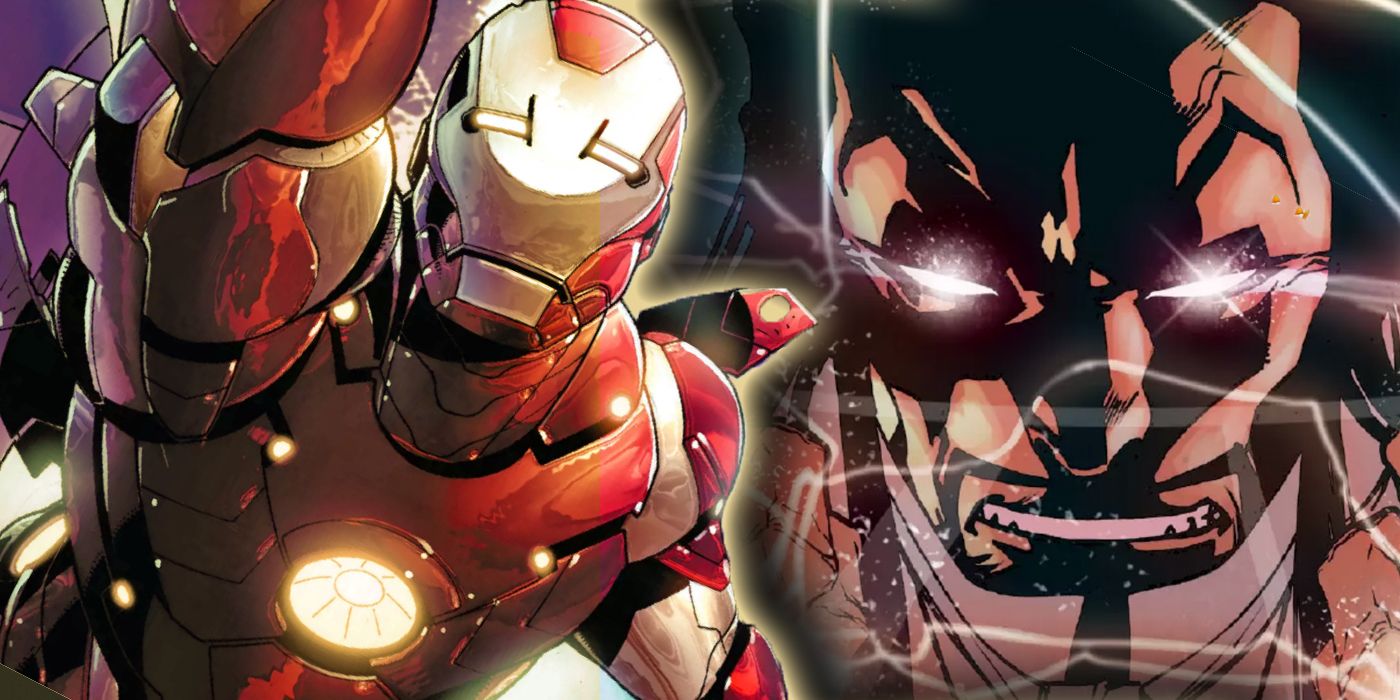
Today, we look at how Matt Fraction used some judicious retcons to deal with a lot of the same issues that Shang-Chi and the Legend of the Ten Rings deals with the Mandarin.
In Abandoned an' Forsaked, we examine comic book stories and ideas that were not only abandoned, but also had the stories/plots specifically "overturned" by a later writer (as if they were a legal precedent).
I discussed this last week, but it is important to remember just HOW significant of a character Fu Manchu was in the first half of the 20th Century. Fu Manchu is an Asian villain who appeared as the villain in a series of adventure novels by British novelist Sax Rohmer that began in 1913. Fu Manchu was the epitome of the idea of "Yellow Peril," which is when writers turn Asian villains into some sort of exotic boogey man. Here is how Rohmer described Fu Manchu in one of the books, "Imagine a person, tall, lean and feline, high-shouldered, with a brow like Shakespeare and a face like Satan, ... one giant intellect, with all the resources of science past and present ... Imagine that awful being, and you have a mental picture of Dr. Fu-Manchu, the Yellow Peril incarnate in one man." Fu Manchu is essentially one of the world's earliest supervillains and his WHOLE DEAL was based on White people's fear of the "other." That's why "Yellow Peril" villains are so gross, because the whole shtick is based on essentially racism. It's similar to how our view of what makes Dracula "evil" is based on the way that we also treated Eastern Europeans as "others." Obviously, though, Eastern Europeans didn't get nearly the same problems as Asian people, who we have long alternated being fetishizing and demonizing in popular culture.
When Stan Lee and artist Don Heck introduced the Mandarin in 1963's Tales of Suspense #50, Lee practically stated on the page that this is essentially Fu Manchu, only called the Mandarin.
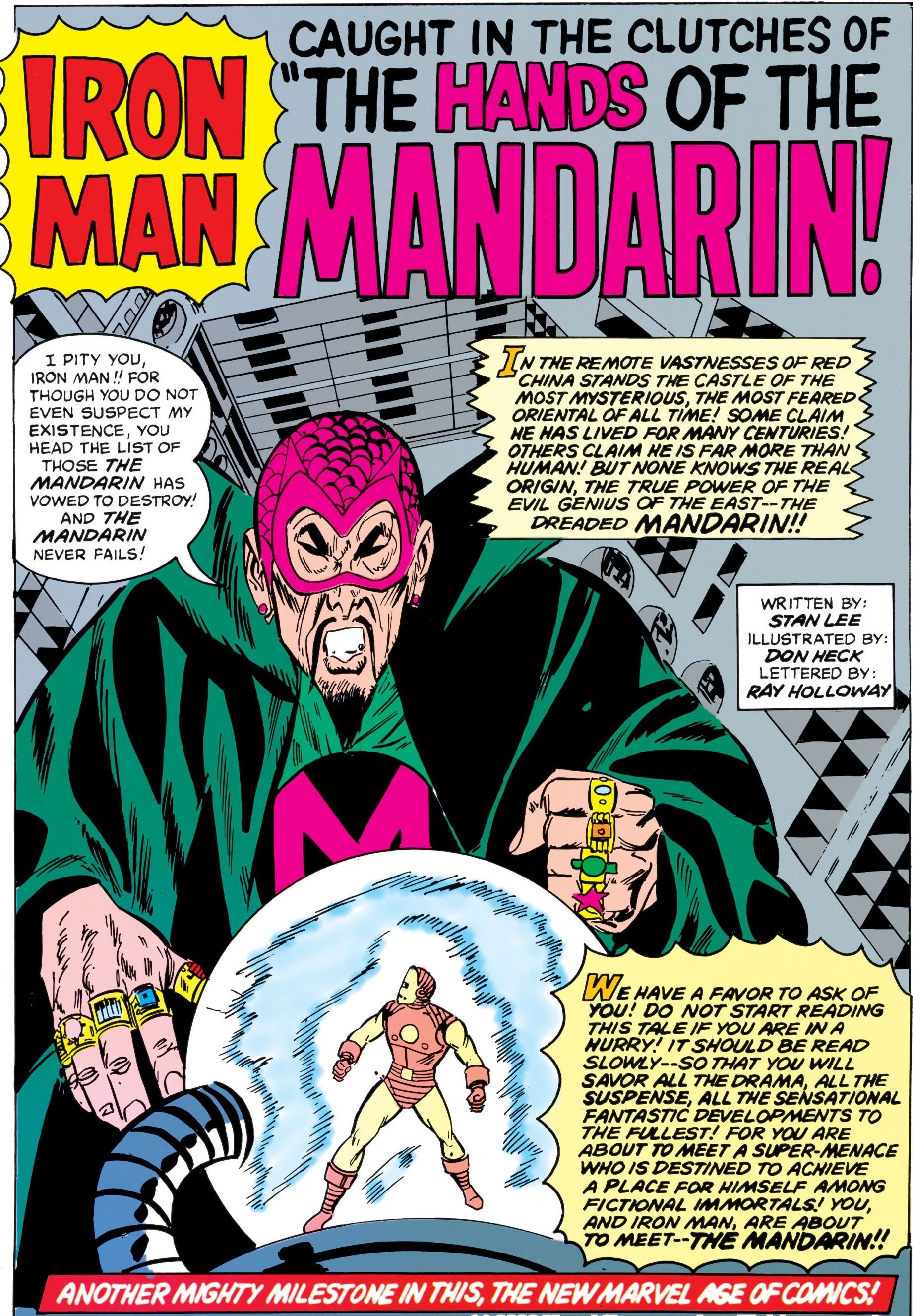
Heck and Lee (who were born in 1929 and 1922, respectively, to give you some perspective on how they came of age in a popular culture that was ALL about Fu Manchu) then gave Mandarin an origin in Tales of Suspense #62 and it was ROUGH.
Mandarin was descended from Genghis Khan? Seriously?
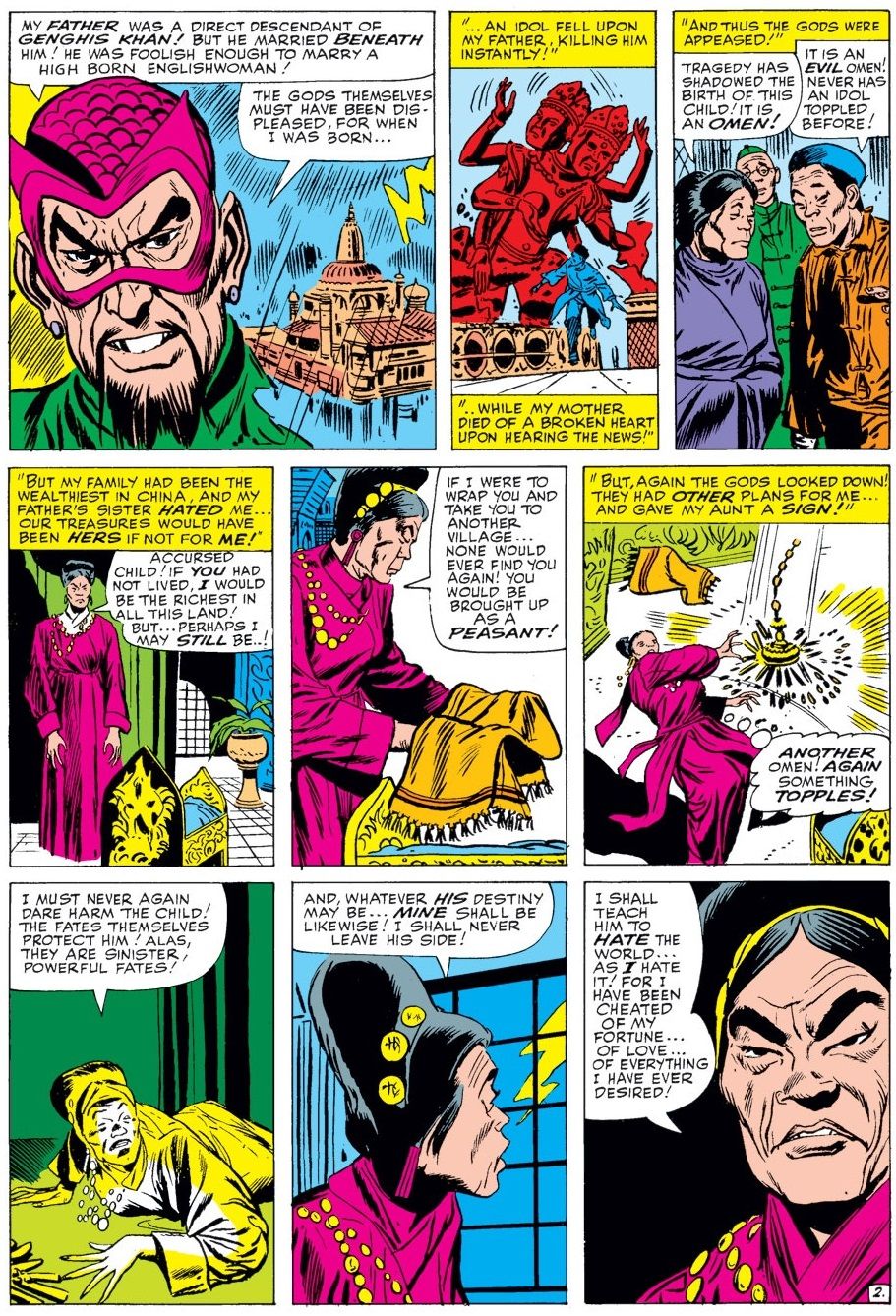
As my pal Sam noted, the origin of Mandarin's superpower is basically the same way Hal Jordan got his Green Lantern ring...
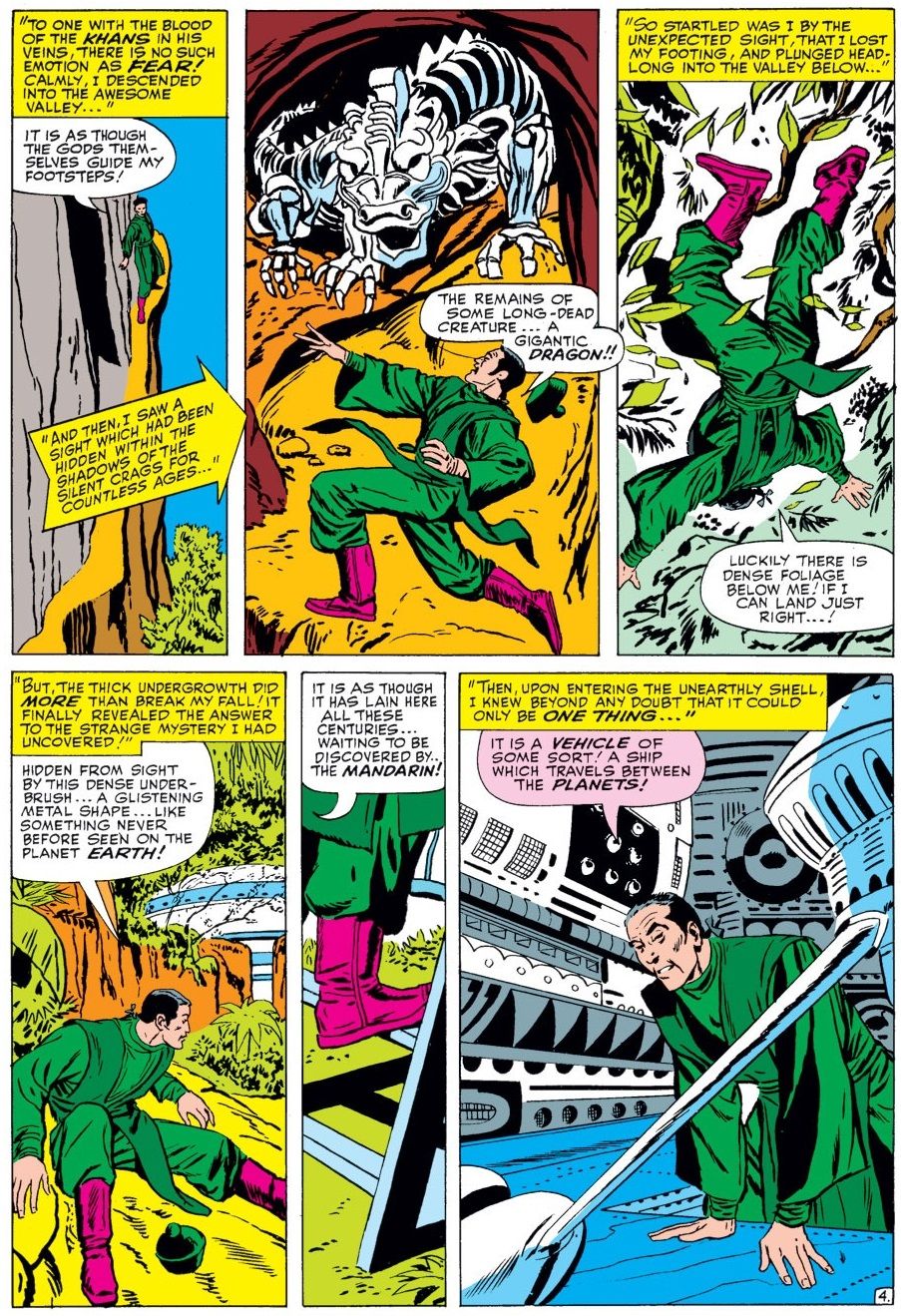
I assume that that is a coincidence, as I doubt Heck and Lee had even read Hal Jordan's origin at the time (it would have been about five years earlier. Could they have been up on the origins of their competitor's superheroes? I SUPPOSE, but I think it is more likely to just be a coincidence)...
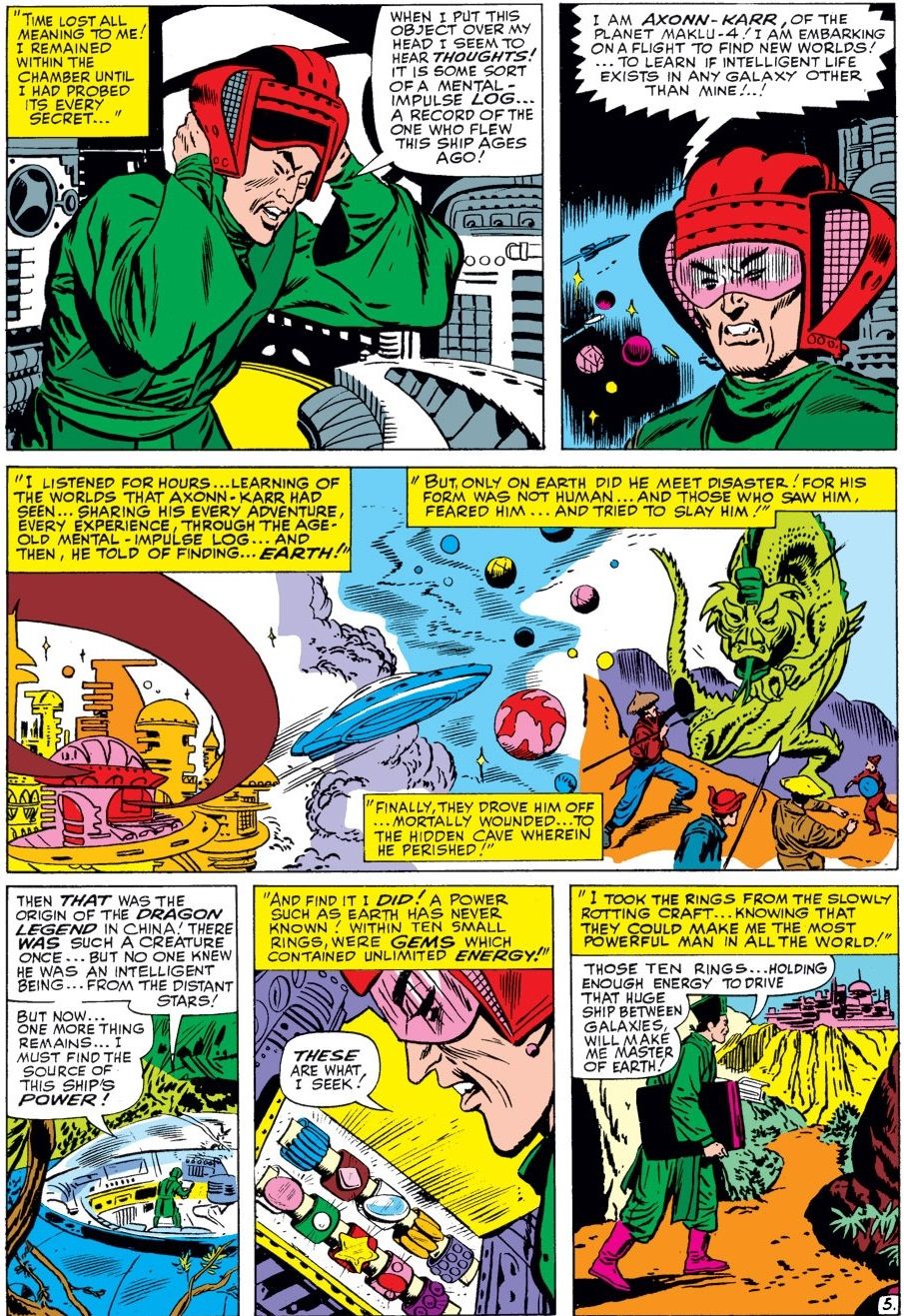
Director Destin Daniel Cretton talked about the Mandarin in general in terms of Shang-Chi and the Legend of the Ten Rings and the Trevor Slattery version in Iron Man 3 (that intentionally leaned into stereotypes to hide the fact that he was not the REAL Mandarin) and noted, “The idea of the Mandarin was a setup to a very clear stereotype. I think it’s hard to imagine who the Mandarin is — this mysterious, really evil Asian dude somewhere out there — and not have some type of stereotype in your brain. So to be able to have Trevor just come in just straight-up apologize for giving a terrible impersonation of their father just felt like the perfect way to say sorry.”
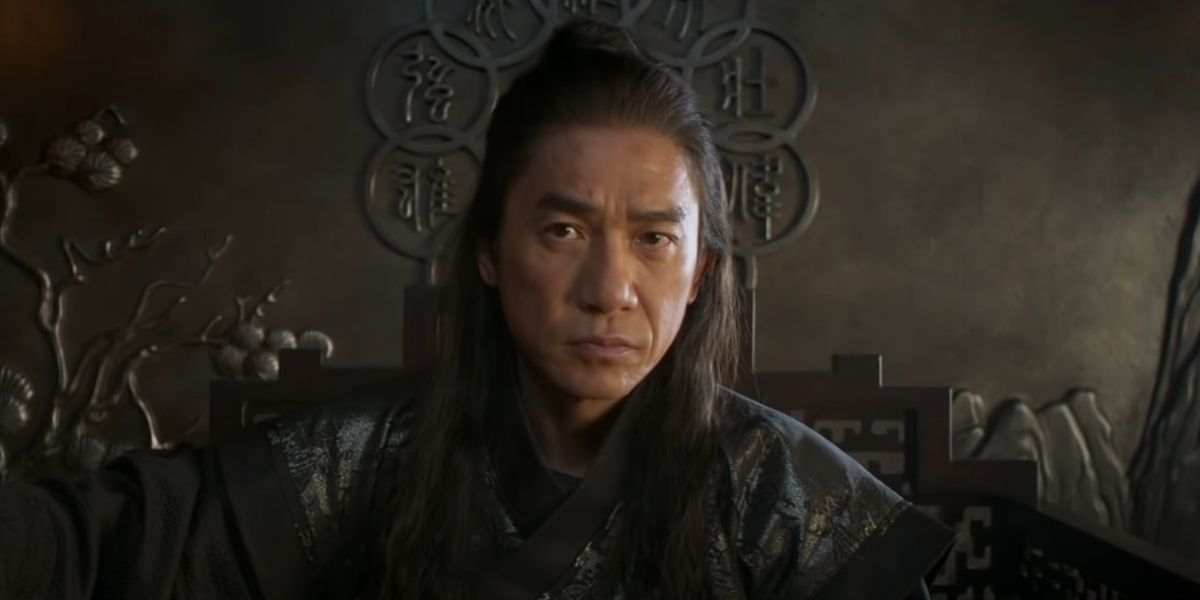
So they really just re-envisioned the idea of the "Mandarin" really, as Cretten also noted, “I think [Leung] brings a humanity that we need for that character,” the director explained. “We are not looking to contribute anymore to the Asian stereotypes that we have seen both in cinema and pop culture. We’re hoping to just show some different sides to both Asian-Americans and Chinese-Americans and Mainland Chinese characters. [Leung] is such an incredible actor and I’m excited to have him help us break some of those stereotypes because that villain could easily become a punchline.”
That reminds me of the brilliant "The Story of My Life" from Invincible Iron Man Annual #1 by Matt Fraction, Carmine Di Giandomenico and Matt Wilson, which saw the Mandarin hiring a director to tell his life story, but as we see, the Mandarin's origin is full of crap...
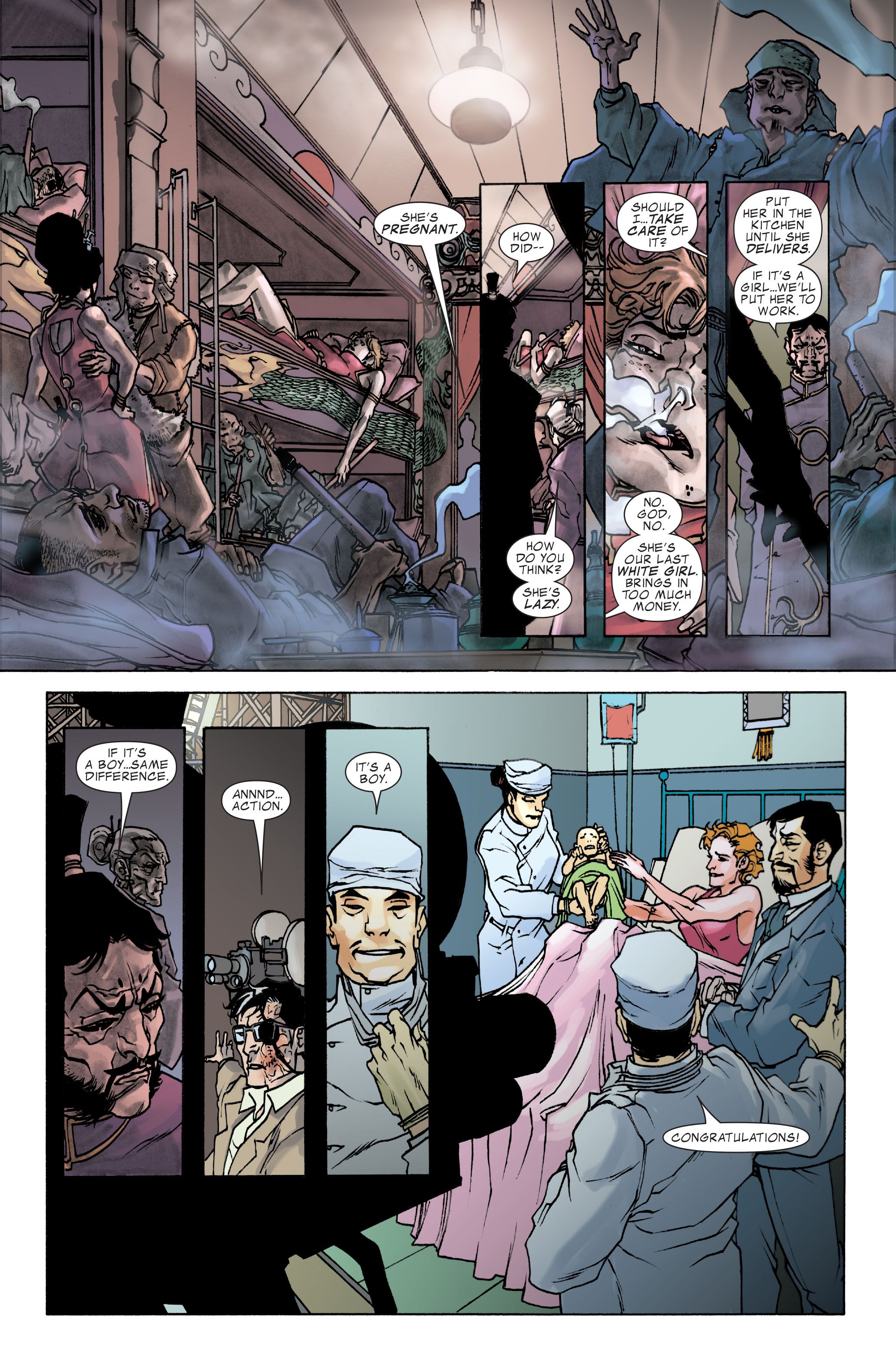
He was the son of a prostitute and grew up in brothels, and did whatever he could to survive...
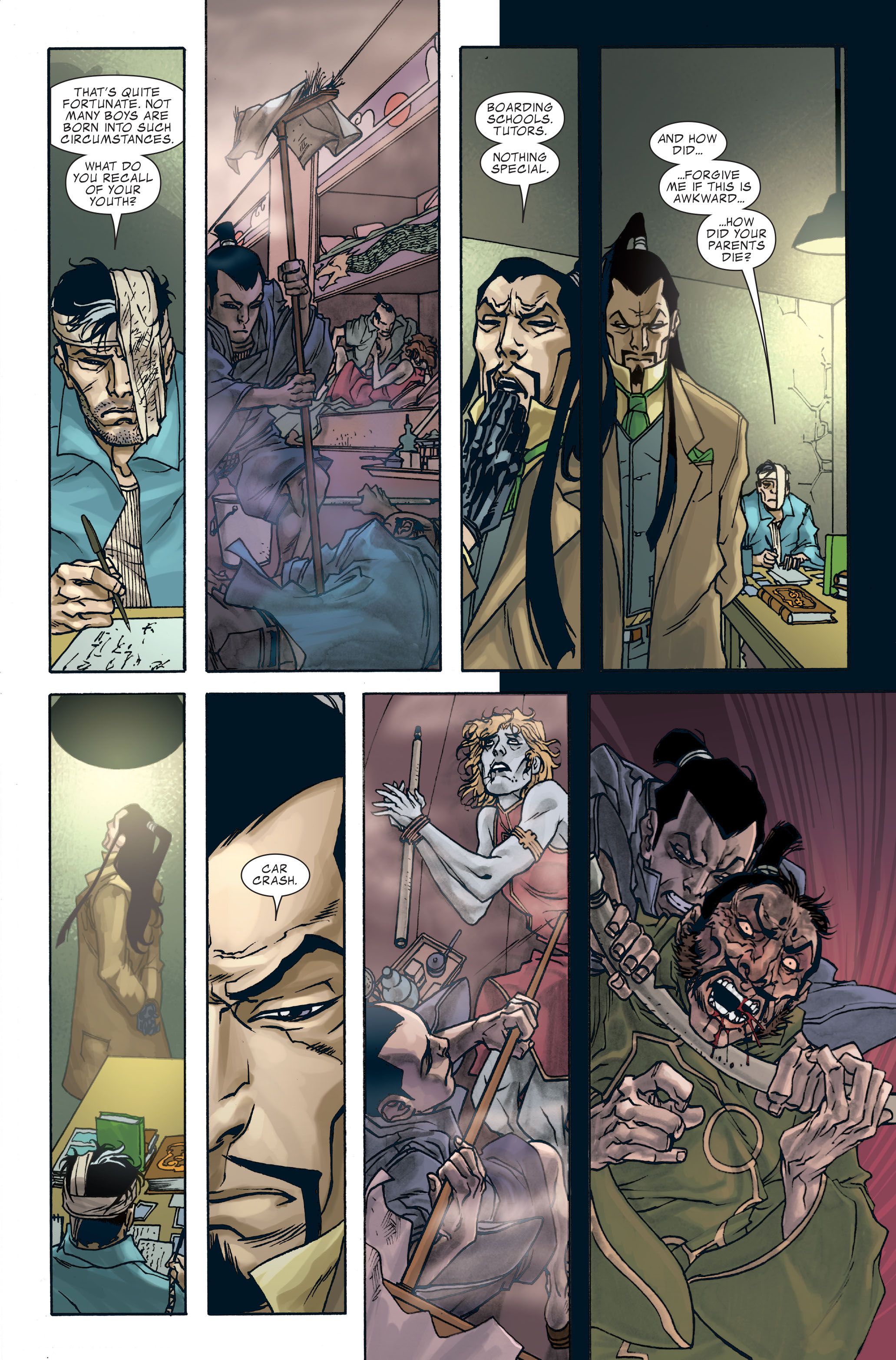
And his alien spaceship story, while basically true, was missing a major factor in its story...
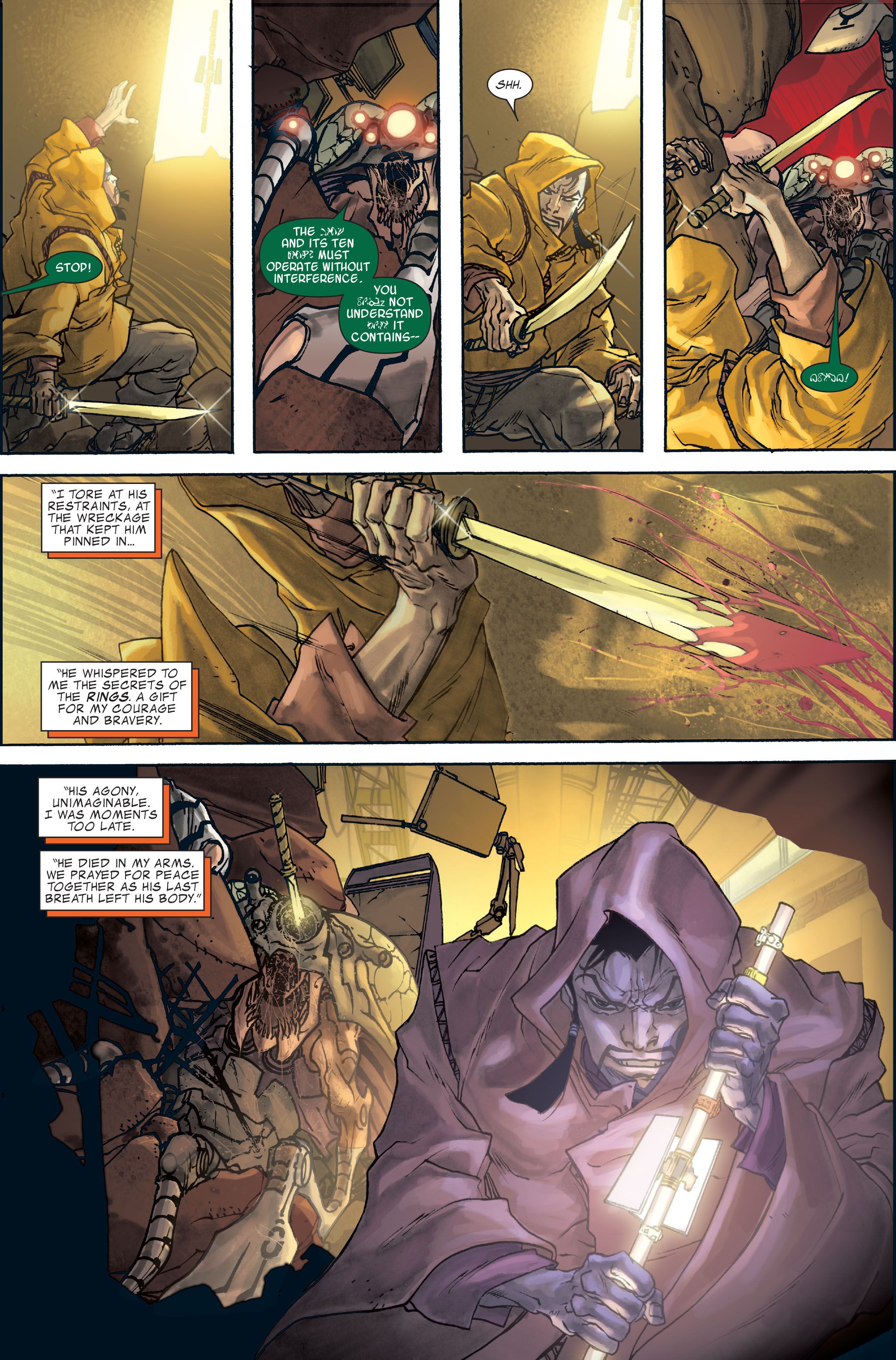
So Fraction, too, takes apart the stereotypes that made up Mandarin's backstory and did a new version of them. However, at the same time, I think Fraction understood that there is only a certain amount of work that you can do with this sort of thing. For instance, Ed Brubaker also tried to do a similar approach with Fu Manchu himself in the pages of Secret Avengers, where, just like how Xu Wenwu is the REAL name of the Mandarin and he just allows others to call him various names over the years for his various purposes, so, too, did Zheng Zu allow people to call him Fu Manchu, as shown in Secret Avengers #8 (by Brubaker and Mike Deodato)...
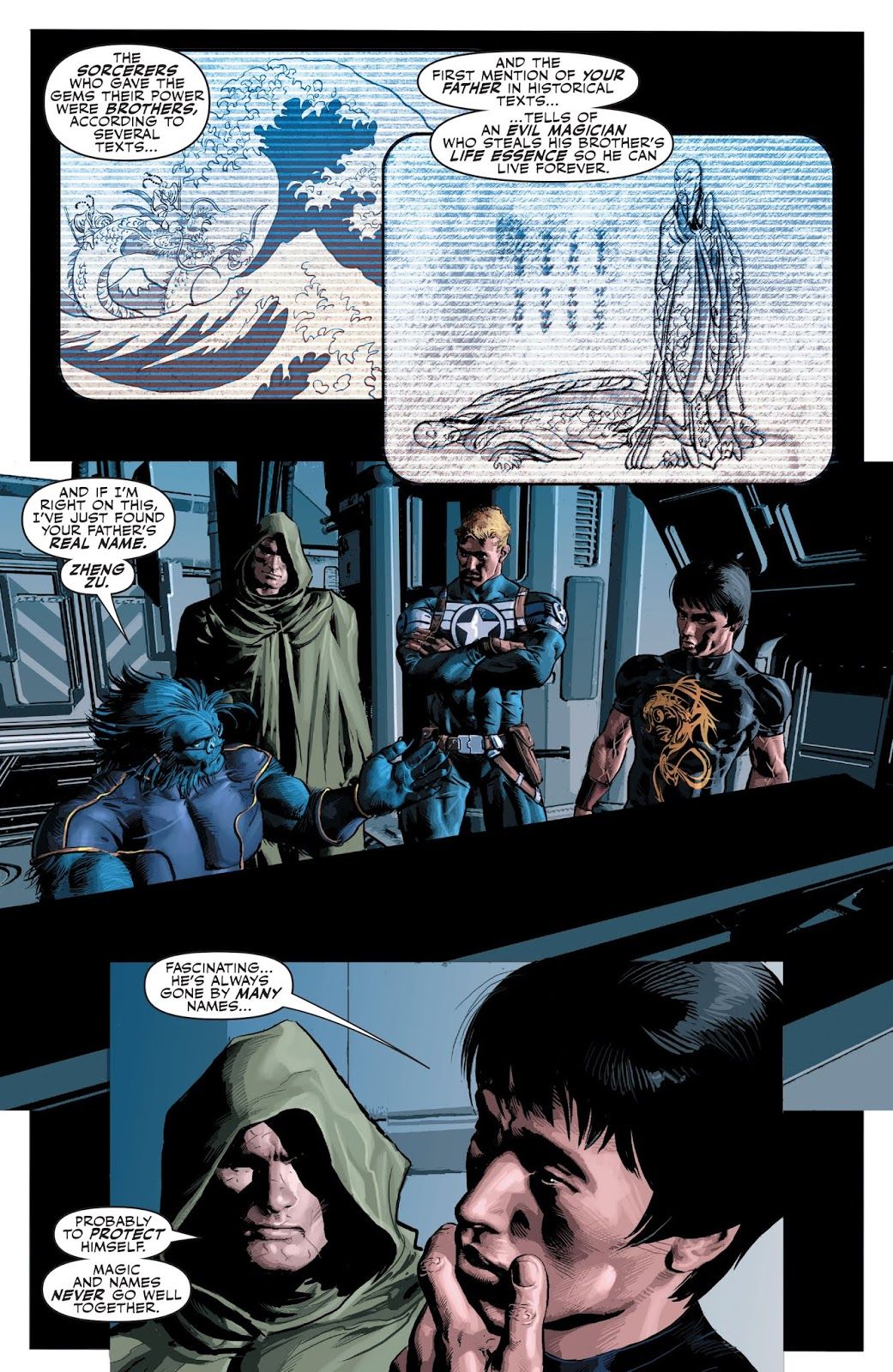
In both cases, though, Fraction and Brubaker are just trying to clean up the same basic Yellow Peril concepts that were always there, and Brubaker left Secret Avengers soon afterward (unrelated reasons, but still) and Fraction ultimately just killed off the Mandarin, because really, there is a limit to how much you truly CAN "redeem" a character like the Mandarin, so it is smarter of the Marvel Cinematic Universe to really just make Xu Wenwu his own, independent character.
If anyone has a suggestion for a future Abandoned an' Forsaked, drop me a line at brianc@cbr.com!
0 Comments